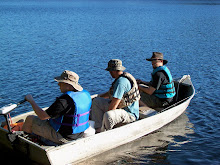NGC1512 - Image by Hubble Space Telescope
I've been reading a kick ass space opera lately - Leviathan Wakes by Corey. I love how he only uses newtonian style thrusters in his ships and humans have explored the solar system but have yet to move out. It seems totally grounded in our reality, except for some kind of "Thing" or "Alien" type monster or mutation which I haven't read far enough yet to fully understand. There is this cool hard boiled noir feel, a detective story, and it is also gets the feel of Das Boot.
I love the submarine type battles between ships. This is the type of Space Opera book I was looking for as I scoured Amazon and Barnes and Noble looking for some kind of cool space related book to read. I was totally burnt out on fantasy and needed a change up. Something that isn't "hard science" fiction but at the same time it isn't star wars badged over either.
I picked up traveller a couple of years ago in PDF format. I liked certain aspects of the game, but others fell short for me. In principle I love the 2d6 dice mechanic, and I recently have been mulling over using a Fudge type character build system with a 2d6 resolution system. But honestly as much as I'd like to play in a space opera, I'd really like to be a player. I'm looking around for PBEM space opera games that are accepting new players. Haven't found one yet. Most of the games I could find were based around an IP of some sort (Firefly, StarTrek, etc...) and I'm looking for something different.
On the other hand, my PBEM greyhawk game is really moving along. This august had the highest number of posts in over 1.5 years on our boards! The players infiltrated a goblin infested keep and made it out alive only to run into a red dragon which killed their horses and burnt all their food. They fled into the Dim Forest and now they are trying to figure out what to do.
Also, the CoC game I've been playing in as Allessandro Mancini has also picked up again - so I'm pretty busy posting and having a really good time with both games so I might wait to find a space game to play in. I also had a really good idea of an alternate character concept for a 1800's-1920's CoC character based around a stage magician, so I have an alt character idea now if Al gets torn apart by tentacles :)
Anyway, a lot of good games and lots of other ideas - too bad I didn't have time/energy to get a table top group together or join one.












